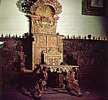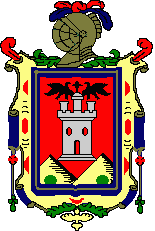Quito the seeds of liberty

Quito has a unique position in the New World, thanks to its relationship with the struggle for liberation in South America. At the height of the period of Spanish domination, Quito was the scene of the vigorous, radical popular uprisings provoked by the introduction of the Sales Tax and Customs duties. That great educator, Eugenio Espejo, who paved the way for future change, and who was one of the great intellectual figures of America, worked here; here was heard the first cry of Independence, on August 10th, 1809, and here too nearly all those involved in the movement for liberation were murdered a year later, on August 2nd, 1810. Last of all, on one of the flanks of Mount Pichincha, in full view of the city, the Battle of Pichincha took place, and set the seal of independence on what is now Ecuador. Espejo's house, and that his disciple Mejia, the great orator of the Council of Cadiz, the house of Manuela Cañizares, where the conspirators held their final meeting before the revolt of August 10th, the cell where the royalist troops murdered the patriots, the battlefield of Pichincha all these are historical sites that can be visited today. At the time of writing, the Temple of the Fatherland is being built on the site of the battlefield, to serve as monument and tomb of those who died for the liberty of their country.
SALES TAX REVOLT
In July, 1592, arrived in Quito the royal letters patent, ordering the payment of a sales tax, of two percent on everything sold by way of commerce: The members of the Quito city council decided not to accept this tax, and to protest the measure before the king. There was no reply. On August 15th, the day on which the new tax was to come into force, the council members, accompanied by a large crowd of people, marched on the seat of government.
The popular leader, Moreno Bellido, was later taken prisoner. The mob released him and paraded in triumph through the streets of Quito. After weeks of apparent calm, the final revolt came about on December 4th, when news reached Quito that armed troops were marching on the city. Quito took up arms and prepared to resist the invasion.
Moreno Bellino was killed, which. served to bring matters to a head, and the seat of the Audiencia was attacked, the President, San Millan, barely escaping with his life. A representative from the king was then sent to the city, and was well received. But a few days later the troops arrived from Lima, under the command of Arana, and inflicted cruel reprisals on the city.
The principal leaders involved in the Sales Tax Revolt were summarily hung and later beheaded, their heads being displayed in the main square. The city as a whole protested during the Sales Tax Revolt, insisted on its rights, and prepared itself far armed resistance. The protest went so deep that some were already beginning to talk of breaking away from Spain. The famous poet Pedro de Oña sang of the revolts of Quito at the end of the sixteenth century in Cantos XIV to XVI of his epic "Arawa domado".
"THE WAR OF QUITO "
During the seventeenth and eighteenth centuries, a strong rivalry was growing between the "chapetones", as the Spaniards were called, and the "criollos" the American born children and grandchildren of Spaniards and at the sometime the spirit of revolt was growing among those of mixed race.

